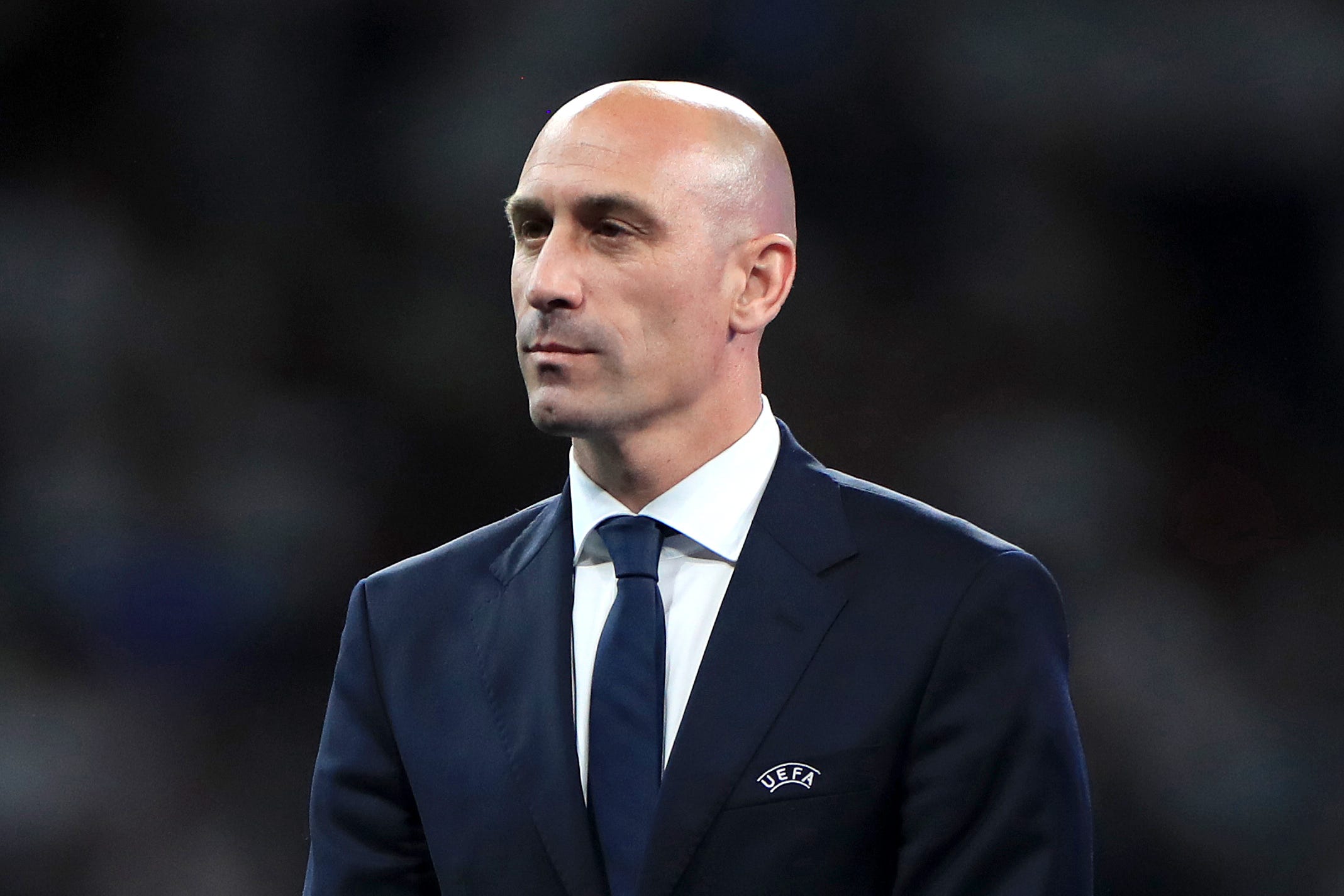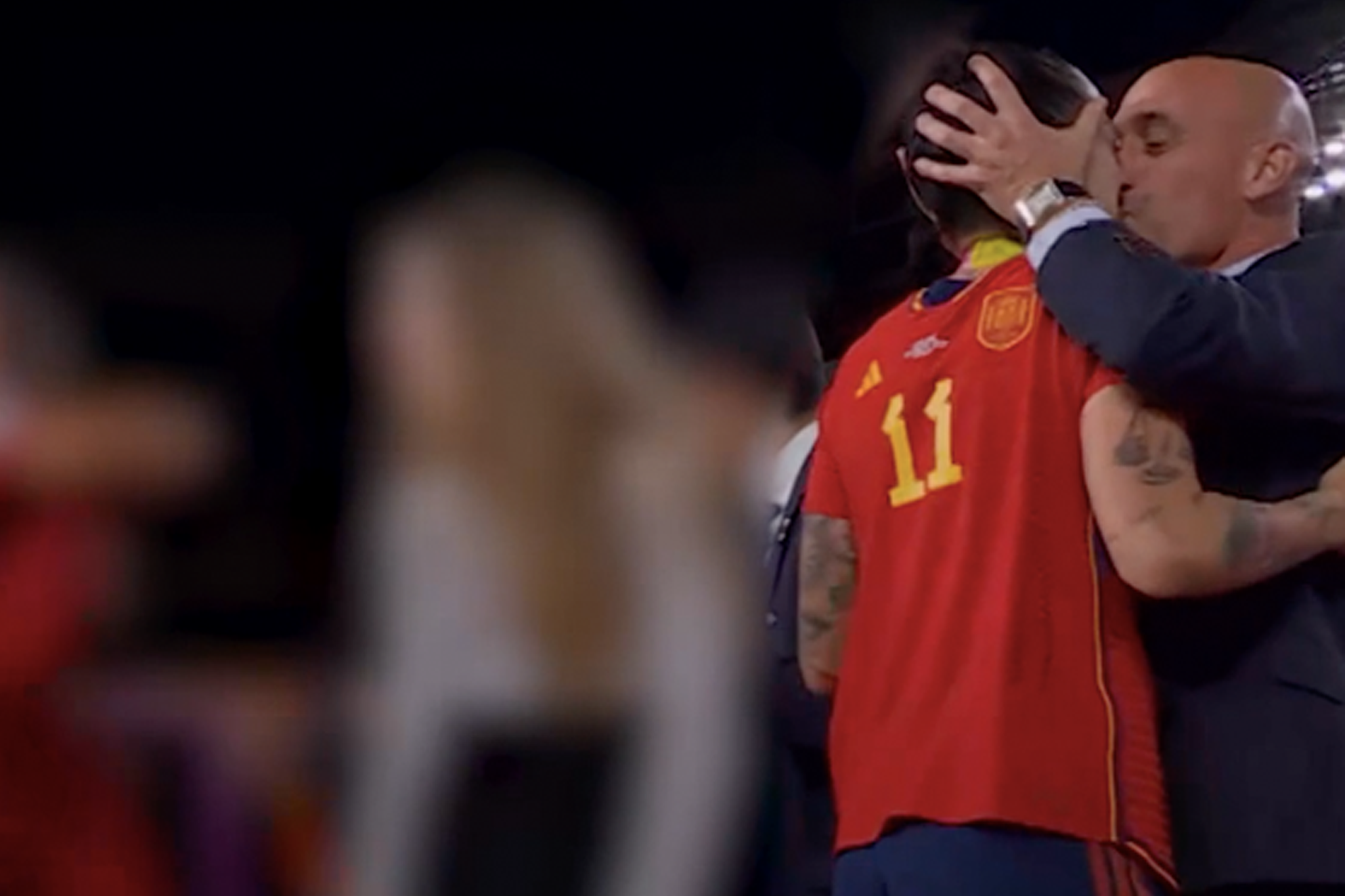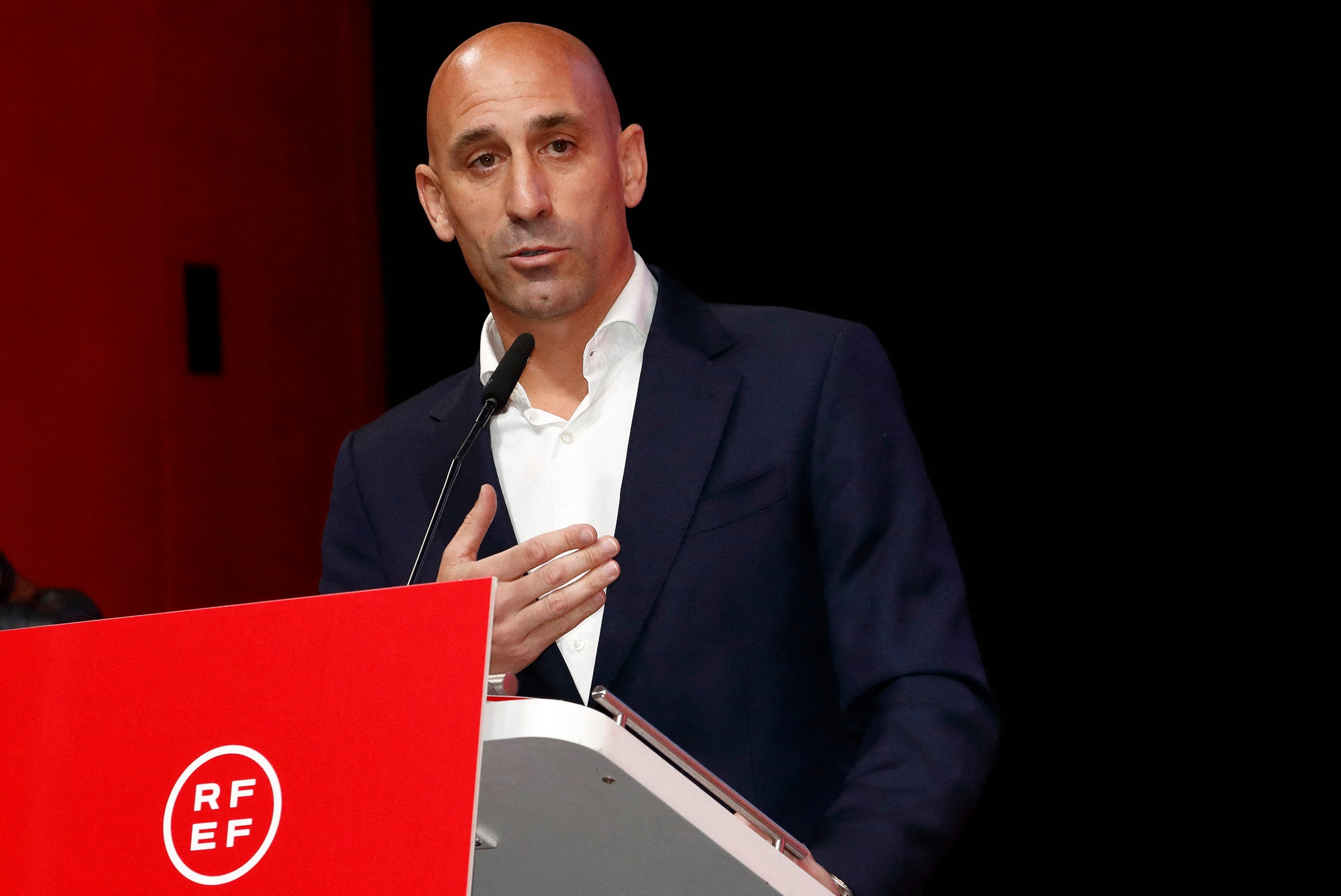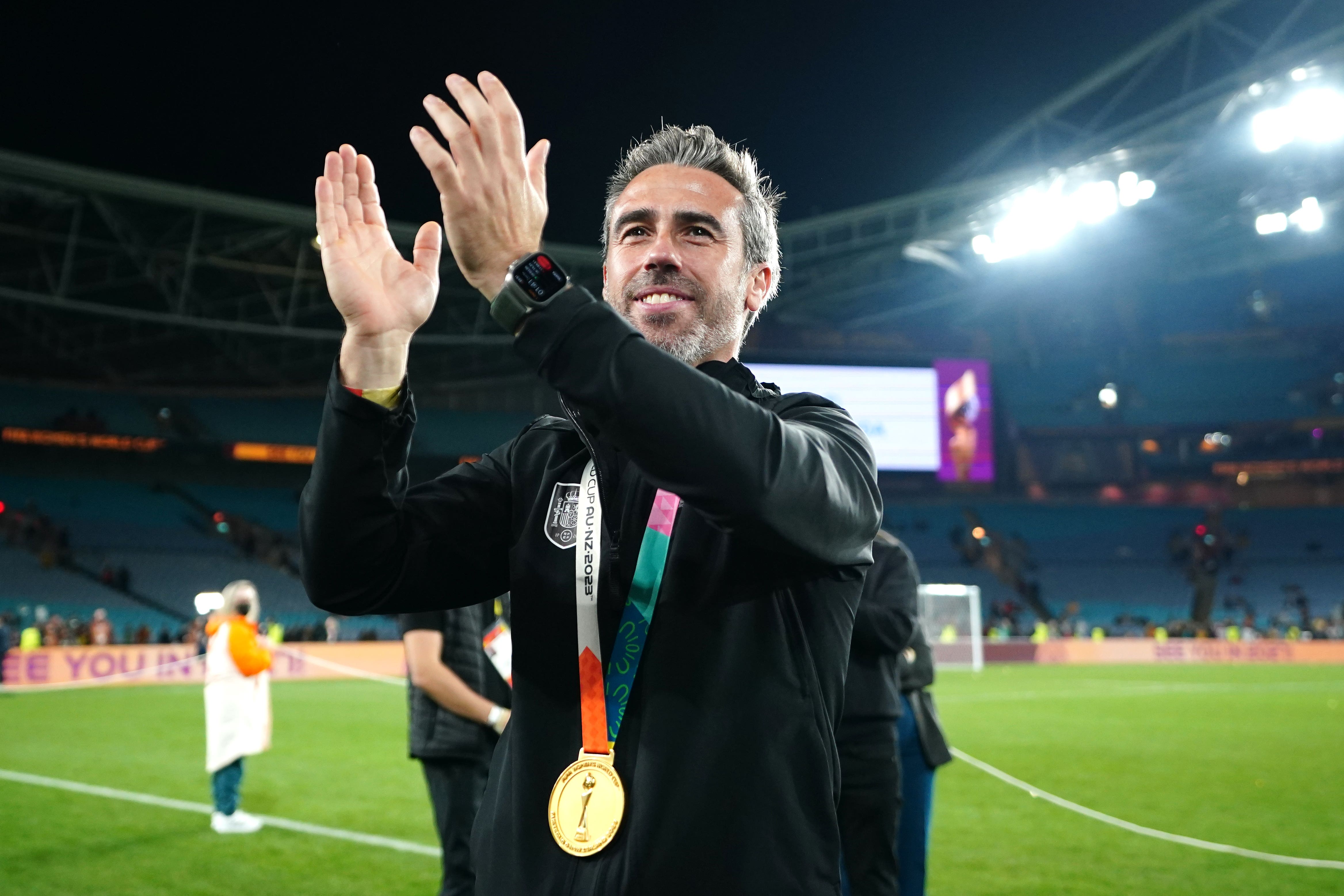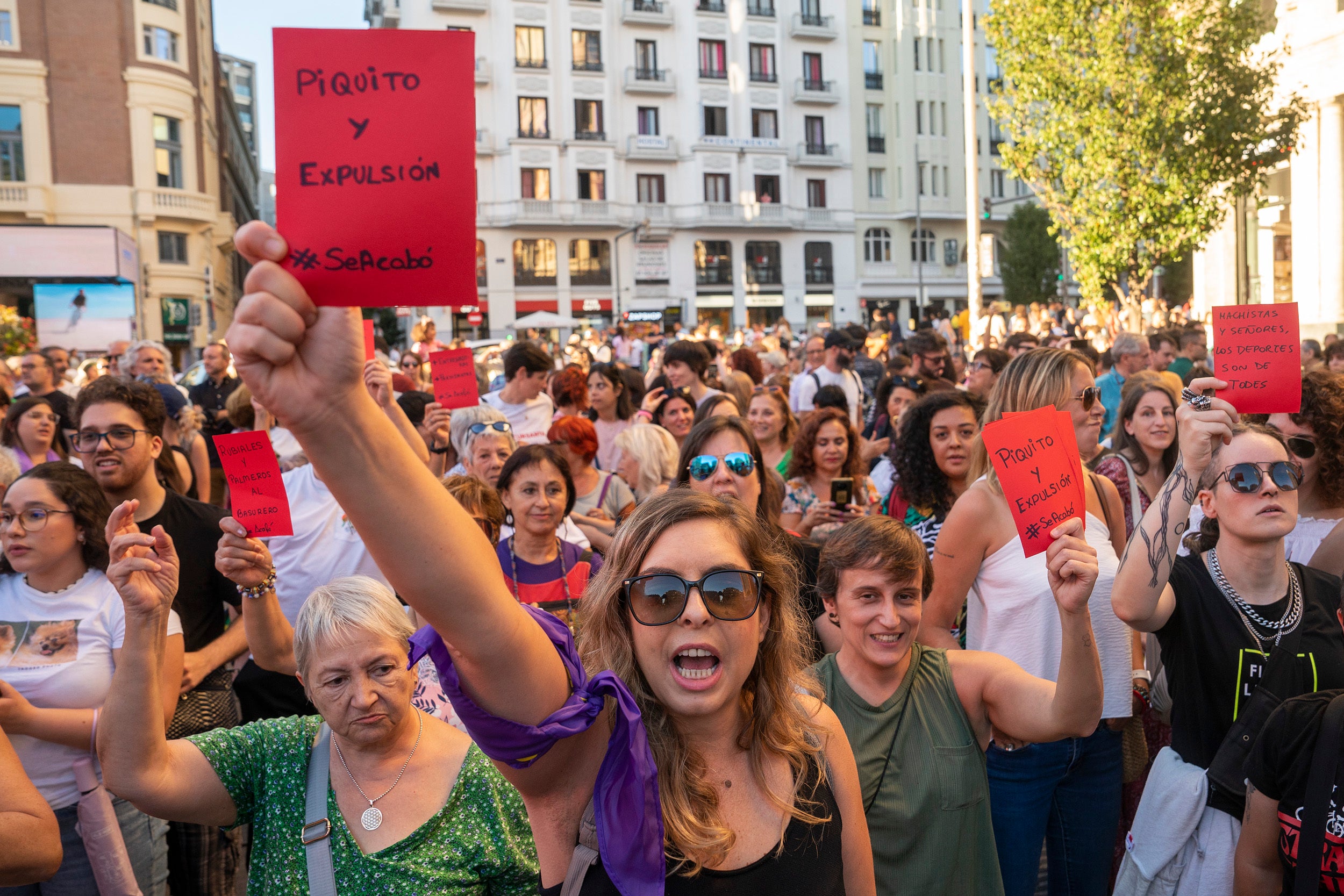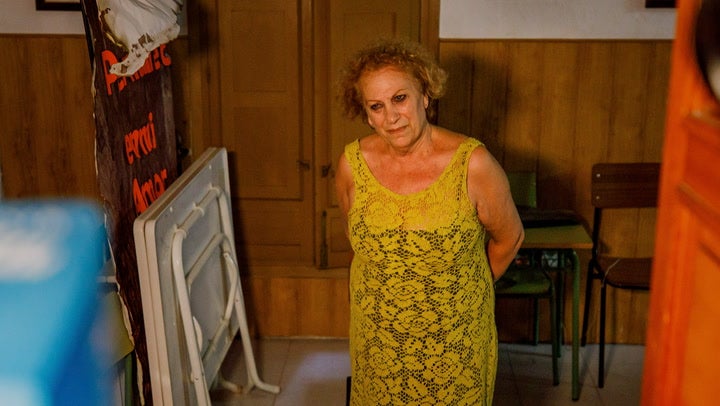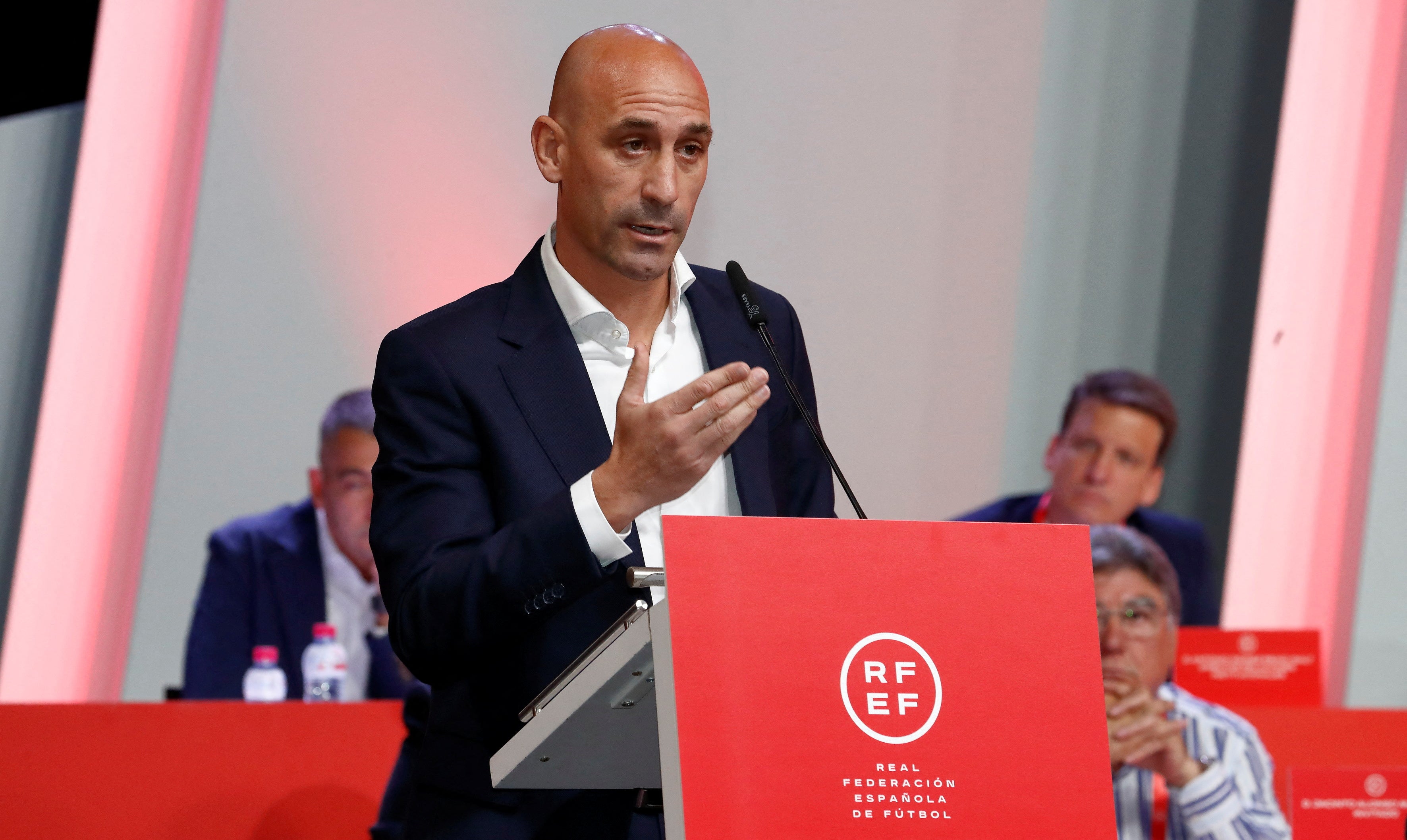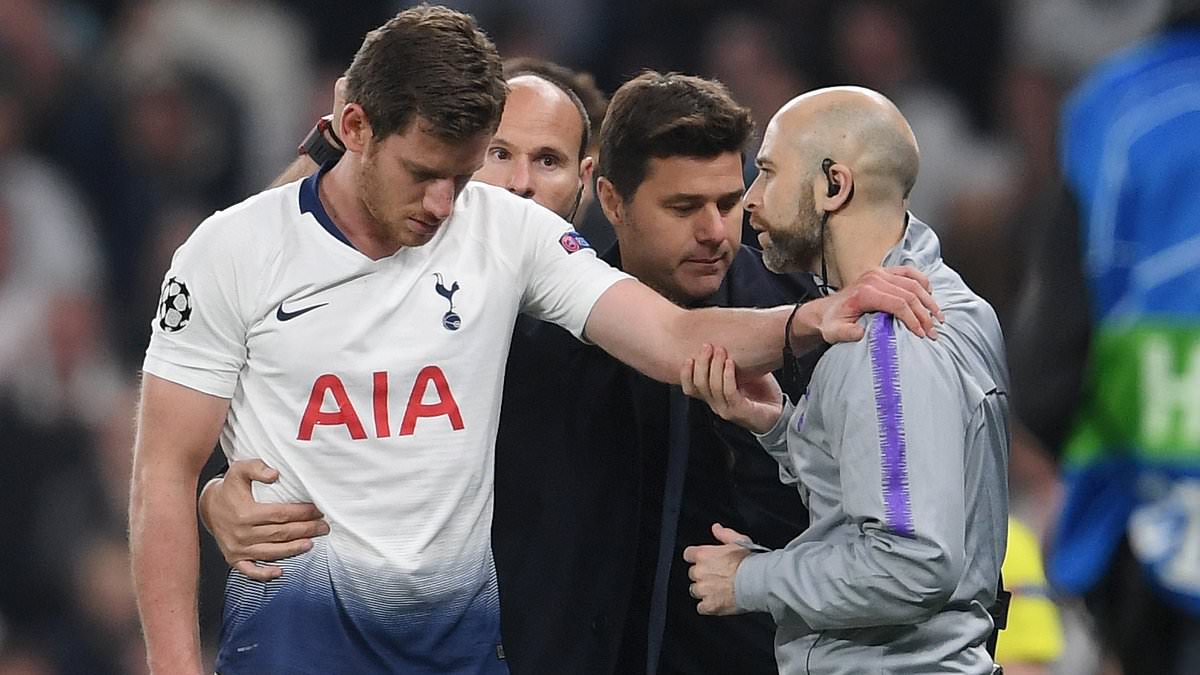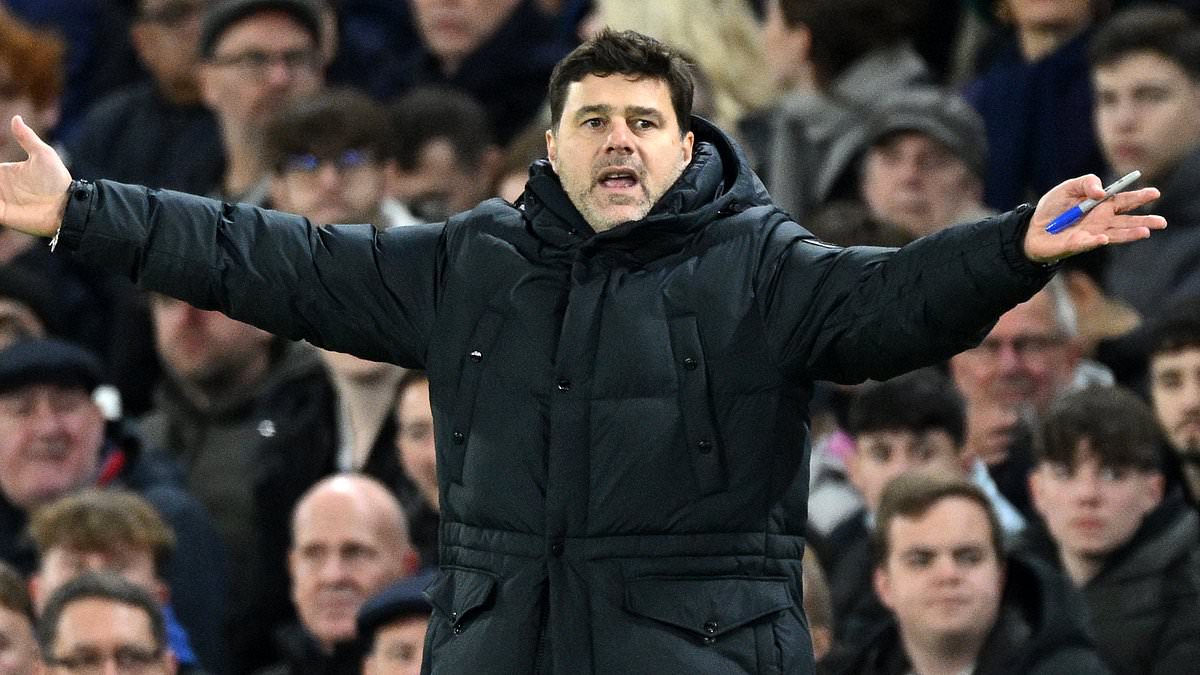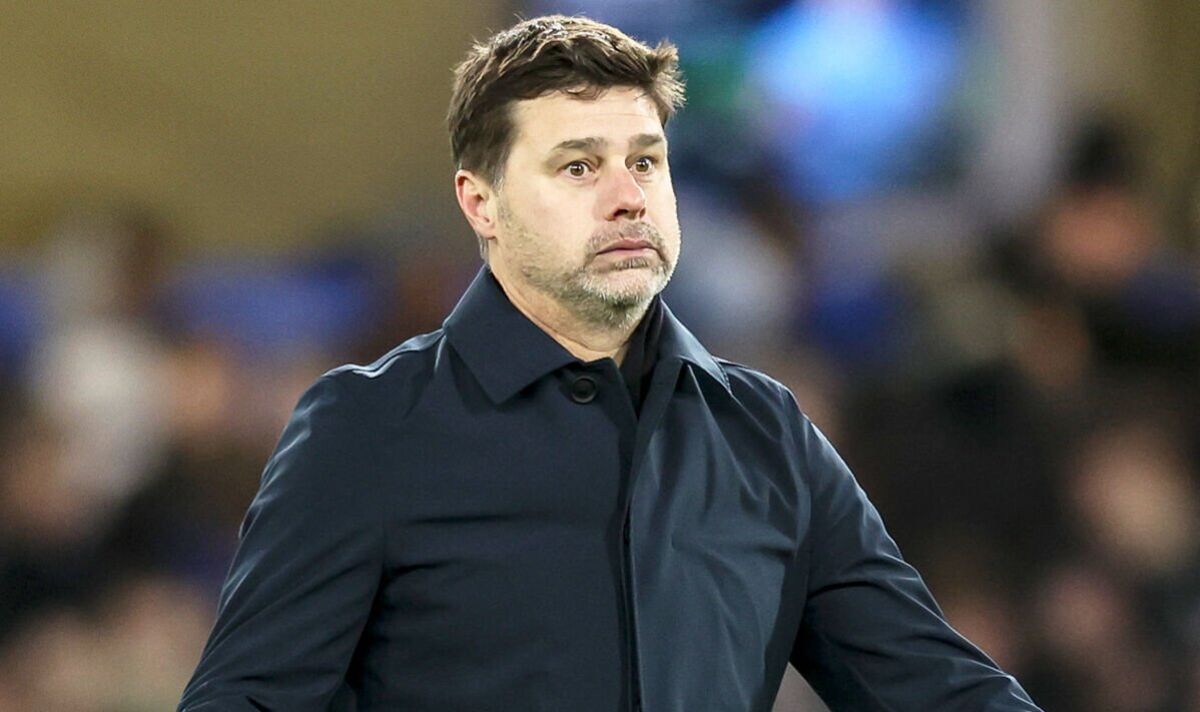Luis Rubiales embraces and kisses Spanish star Aitana Bonmati
Sign up to Miguel Delaney’s Reading the Game newsletter sent straight to your inbox for free
Sign up to Miguel’s Delaney’s free weekly newsletter
Thanks for signing up to the
Football email
As of Wednesday afternoon, Luis Rubiales was completely isolated and yet still officially the head of the Royal Spanish Football Federation (Rfef). It is an absurd situation that symbolises so much about a story that is at once so serious and also utterly farcical, not least when it comes to the organisation itself.
The regional chiefs that form the Rfef’s assembly finally turned on Rubiales by requesting his resignation on Monday, but they don’t actually have the power to force it. The 46-year-old still has to take the decision, which would come just days after he repeatedly announced: “I am not resigning!”. In the meantime, he is suspended from all football-related activities by Fifa, which could take it even further once its investigation concludes.
So much of this story has developed from Rubiales’ distinctive personality, to put it generously. And yet the very fact such a personality is so difficult to remove from the role is a reflection of something much bigger, which has also provoked even more discussions about what Spanish football has been and where it is going.
A common sentiment is that this shouldn’t stop at Rubiales’ resignation – whenever that may come. The vociferous applause he received for that speech at the federation base was an illustration of why. Even as so many of those pictured clapping his words have now turned on him too, right up to the controversial Spain manager Jorge Vilda.
“The whole incident has proven how weak the federation’s government and oversight structures are,” one involved source stated. It is why the word “structural” has been used so many times in the days since.
Recommended
“We want to state this is a structural problem,” said Amanda Gutierrez, president of the Futpro union that represents Jenni Hermoso. “It is something football players suffer every day of their career; they have to face these discriminations.”
FA Spanish president Luis Rubiales kisses footballer Jenni Hermoso
Joan Soteras, president of the Catalan Football Federation, one of the regional organisations that make up the Spanish federation, echoed those words, saying: “We need structural change in women’s football. Maybe Vilda leaving should be part of that change.”
It is why this is about so much more than “a peck”, as Rubiales so provocatively put it.
Rubiales’ unwanted kiss on Hermoso was initially explained away as “euphoria” amid the World Cup victory but it came out of a strikingly triumphalist attitude, that had already seen him grab his crotch. That attitude actually preceded the final and went back to Spain’s semi-final win over Sweden, when Rubiales became the first person from the team camp to break an uneasy truce and mention the player rebellion (when a number of Spanish stars boycotted the team in September 2022) for the first time.
Even the language there was provocative, as he spoke of “people with resentments”. Those so-called “resentments” were actually profound concern about how the Spanish squad were managed and how substandard preparations were, right up to complaints about how they were made to leave their hotel doors open at night.
The federation did listen to some complaints during the World Cup itself, moving the team’s base, but Rubiales made it stridently clear where he stood by fully backing Vilda. It was impossible not to put his triumphalism from the semi-final into that context, as if this was personal vindication for him and Vilda. It may yet bring the downfall of Rubiales and the departure of Vilda. The calls are already growing for the latter to be forced out too.
Other related controversies have followed Rubiales, such as the way he speaks to people. That included a development from 2016 when Tamara Ramos – a staff member for the Spanish Footballers’ Association, where Rubiales had previously been president – said he commented on her underwear and joked: “You’ve come here to put on your kneepads.”
Luis Rubiales refused to resign from his post last week
This has all framed the frequent commentary now that the triumph of a women’s team has been completely dominated by a man, who had sought to put himself and his manager at the centre almost immediately.
But there’s a wider context to that, too. One reason that Vilda even got the job is because his predecessor as Spain women’s manager, Ignacio Quereda, was finally forced out in 2015 after 27 years. The details that led to that have echoes with now, but are of an even more concerning nature.
It is no coincidence that a 2021 documentary that covers Quereda’s time titled Breaking the Silence has been widely shared on social media in the last few days. The former manager had complete authority over an underfunded team, and was accused of bullying his players and reducing them to tears in a “culture of fear”. He would stand in a circle at training and tell one player “you’re fat” and another that “you need an alpha male” as a partner. The documentary cites homophobic language as well as a racist attitude towards Catalans, calling them “polacas”.
Players would seek to avoid him off the pitch, although that was difficult when he demanded total control in camp. Quereda would demand to see what was in shopping bags, according to former player Mar Prieto, and go around each hotel room every night before shutting the door. Such apparent attention to detail in this area was not matched with football preparation, as there was negligible video analysis or tactical preparation. These were not the circumstances to even get the players performing to par, and they were duly knocked out in the first round of their first World Cup in 2015. Players had complained to the federation before, but then-president Angel Maria Villar never seemed to heed their concerns. The squad instead saw him as enabling Quereda, and eventually wrote a joint letter demanding change. Villar is reported as dismissing this, describing it as “nonsense from the girls”, which forced them to go public.
Vilda, whose father is a prominent federation employee, eventually replaced Quereda.
Spain head coach Jorge Vilda remains in his post after the resignation of most of his staff (Zac Goodwin/PA)
Villar himself was replaced by Rubiales in 2018, after a suspension that followed a detention on allegations of collusion, embezzlement and falsifying documents.
It was in December 2017, coincidentally, that there were echoes of the Spanish federation’s absurd request to Uefa that the organisation be expelled for state interference. Villar warned that Fifa could ban Spain from the 2018 World Cup, as he said the move by the sports council (CSD) to suspend him was “arbitrary” and an “injustice” without giving him the “possibility of presumption of innocence”.
“The only ones responsible for the possibility that the national team could miss out on the World Cup is the current government,” Villar said.
It is the CSD which received the four official complaints against Rubiales.
Prominent sources within football politics say the Spanish federation was seen as a “basket case” for years. All the more surprising given how its coaching infrastructure genuinely revolutionised world football. The top level beyond that was seen as made up of conservative white men, though, with little influence from women or minority groups.
That was interpreted as crucial to some of the most jaw-dropping developments of the past few days, where the federation seemed completely in thrall to Rubiales, with a series of statements that defied belief.
The reality of public opinion eventually intervened. All of this has informed the current situation, and particularly the Se Acabo slogan – “It’s over” – which is really saying enough is enough.
Victor Francos, the president of the CSD, has already described this as a MeToo moment for Spanish football. It has been so profound, leading all bulletins, that the hope is that it finally brings deep change. That might be a legacy from these players as valuable as the World Cup itself.
People take to the streets in Madrid to protest against Luis Rubiales
Recommended
“Our generation wants to make a legacy for the future,” star player Alexia Putellas has said. “We need executives and institutions to fight for our fight so players have what they deserve.”
“A change is taking place,” Spain centre-back Irene Paredes said on the eve of the final in Sydney. Little did she know the potential extent of it.
Source: Read Full Article



